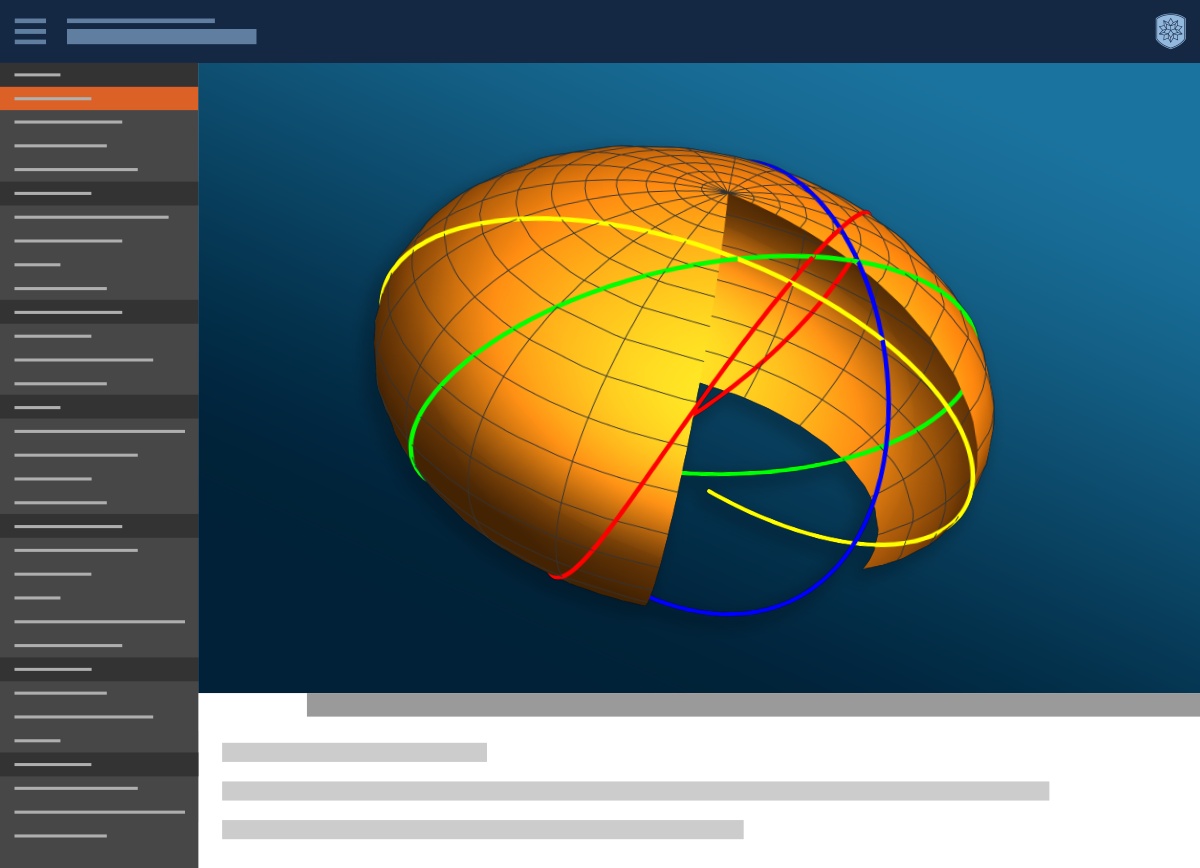Introduction to Decision Process Theory
- Interactive Course
- 7 h 30 min
- Intermediate
- 2 Certifications
This course extends classic game theory concepts by introducing a dynamic model extension of game theory. Use a decision process theory (DPT) toolkit based on Wolfram Language to work though the course. The DPT toolkit allows for the prioritization of conceptual understanding over mathematical equation solving, making concepts accessible to not only engineers but also to a more general audience, with applications to business, economics, project management and social behaviors. The course begins with classical topics in game theory and includes an approach to dynamic behavior using streamlines, a concept carried over from fluid flow dynamics. See how game theory can be extended with ideas from geometry, physics and engineering. The author is Professor Gerald H. Thomas, the instructor of a successful engineering course and author of A Field Theory of Games, Volume 1 and Volume 2. Wolfram AI Course Assistant is available for this interactive course.
Course Overview
Requirements: This course requires basic working knowledge of Mathematica or Wolfram Language and familiarity with basic concepts of algebra, linear algebra and calculus. The course does not require prior knowledge of game theory.
Featured Products & Technologies: Wolfram Language (available in Mathematica and Wolfram|One)
You'll Learn To
- Solve classical game theory problems in normal form
- Distinguish solutions for zero-sum and non-zero-sum games
- Use differential geometry and decision process theory to define a player and codes of conduct
- Think of behaviors in games as flows and compute their streamlines to capture more of the dynamics
- Understand how to apply a generalized Nash equilibrium for non-zero-sum games such as Chicken and Prisoner's Dilemma
- Incorporate irrational behaviors in decision process theory
- Use stresses to formalize the concept of ownership as well as to account for games with non-perfect information
- Apply stationary flow examples to time-dependent behaviors
Video Duration
- Section 125 minutes
- Section 236 minutes
- Section 340 minutes
- Section 433 minutes
- Section 527 minutes
- Section 623 minutes
- Section 724 minutes
- Section 828 minutes
- Section 919 minutes
- Section 1031 minutes
- Section 1129 minutes
- Section 1228 minutes
New! Wolfram AI Course Assistant
This interactive course includes video lessons, quizzes, practice problems, a final exam and our new chat-based Course Assistant powered by Wolfram LLM Kit. Ask Course Assistant anything about the lesson, and it will provide you with contextually aware answers and even relevant code. Get started with our free courses by signing in to the Wolfram Cloud with your Wolfram ID—or create one; it's free! Our recommended best practice for completing this interactive course is to start with Lesson 1 and progress through the video lessons, taking each quiz in the order it appears in the table of contents. You can click Track My Progress to chart your certification progress as you go. Wolfram AI Course Assistant is included with a Wolfram Notebook Assistant + LLM Kit subscription.
Certifications Available
Completion Certificate
Certify your completion of this course by watching course videos and passing the auto-graded quizzes.
Track My ProgressLevel 1 Certification
Pass the auto-graded quizzes and final exam to certify your proficiency in decision process theory.
Track My Progress




